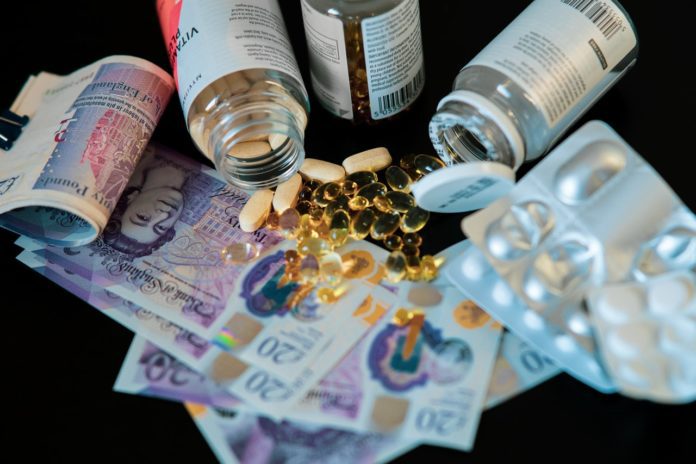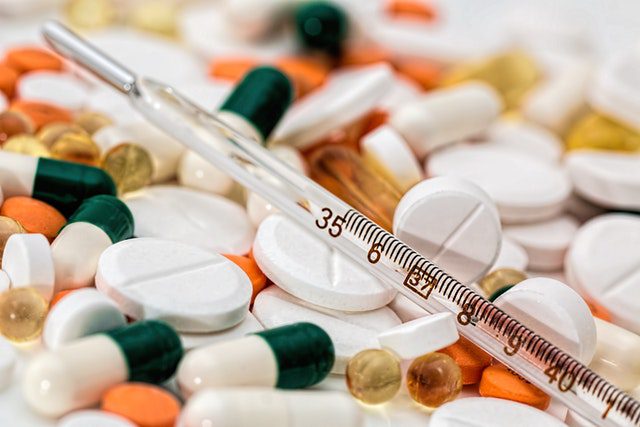Prescription drug misuse is a growing issue that may impact people of all ages, including teenagers.
Opioid pain relievers, anti-anxiety meds, sedatives, and stimulants are the most often misused prescription pharmaceuticals.
You can explore the special recovery services provided by Phoenix Detox Center, which exclusively focuses on prescription drug abuse addiction treatment.
What Is Prescription Drug Abuse?
Prescription drug misuse is the use of prescribed medicine in a way that the prescribing doctor did not intend.
Prescription drug misuse or problematic use can range from using a friend’s prescribed pain relief medicine for a backache to injecting and snorting unauthorized pills to get high. Despite the negative consequences, drug misuse can become chronic and obsessive.
Early detection and management of prescription medication usage may prevent the problem from progressing to addiction.
Causes
Both teens and adults abuse prescription medicines for various reasons. Some of the most compelling reasons behind prescription drug abuse are:
- To unwind or release stress.
- To have a good time or to get high.
- To experiment with the substance’s mental effects.
- To curb one’s hunger or heighten one’s attention.
- To keep an addiction going and avoid withdrawal symptoms.
- To attempt to increase focus and academic or occupational performance.
- To be sociable or to be accepted by one’s peers.
Symptoms
The signs and symptoms of prescription medication addiction vary depending on the medicine. However, the following prescription medicines are the most widely misused, so if you take one of these, you are abusing prescription drugs.
Let’s take a look:
1. Stimulants
Stimulants are used to treat attention deficit hyperactivity disorder and some sleep disorders. These medicines include methylphenidate such as Concerta, Ritalin, etc.
2. Anti-Anxiety Medicines
Anti-anxiety medicines include hydrocodone, which may help you relax. In addition, drugs such as Norco, alprazolam, diazepam, and hypnotics, are used to treat these anxiety and sleep problems.
3. Opioids
Opioids such as Percocet and Oxycontin are used to relieve pain, which is why they are also a significant contributor to the prescription drug abuse scenario.
Risk Factors
Some people are afraid of becoming addicted to drugs provided for medical issues, such as pain relievers following surgery. However, you may lower your risk by strictly following your doctor’s recommendations on how to take your prescription.
Some of the significant risk factors of prescription drug abuse are;
- A family history of substance misuse disorders.
- Addictions to other drugs, such as alcohol and cigarettes, in the past or present.
- Peer pressure or being in a social atmosphere where drugs are being used.
- Certain pre-existing psychological disorders.
- Prescription medicines are more easily accessible.
- Inadequate understanding of prescribed medications and their potential for damage.
Complications
- The body’s response to long-term usage is a physical dependency. People who are physically reliant on a prescription drug may require bigger dosages to achieve the same results and may experience withdrawal symptoms if they stop using the substance abruptly.
- People who are addicted to drugs may have a physical dependency. Still, they also seek the substance obsessively and continue to use it even when it creates numerous issues in their life. Thus, they can fall victim to addiction habits.
- Anti-anxiety drugs can induce low blood pressure, memory issues, and slower breathing. Overdose might result in coma or death. Stopping the medicine abruptly may result in seizures and nervous system hyperactivity.
- Opioids can result in reduced breathing rate, low blood pressure, and the risk for respiration to stop, as well as a coma. Opioid overdoses also have a high risk of mortality.
- Stimulants can result in dangerously high blood pressure, high body temperatures, seizures, cardiac issues, hallucinations, paranoia, and aggression.
Preventive Measures
Make sure that your doctor knows your disease and the indications and symptoms. Inform your doctor about all of your medicines, as well as any over-the-counter drugs, drug, and alcohol usage. Inquire with your doctor whether there is an alternate medicine with less risk for addiction.
In order to know what to anticipate, ask your doctor or pharmacist about the side effects of your drug. Also, check if any other medications or alcohol should be avoided while taking this medicine.
You should also consult your doctor frequently to ensure that the medicine you’re taking is adequate and that you’re taking the correct amount.
Use your medicine exactly as directed. If a drug doesn’t appear to be working, don’t stop taking it or modify the dose without consulting your doctor.
Everyone is unique. Even if you have a comparable medical condition, don’t take anybody else’s prescription to the pharmacy and start using that drug.
Treatment
Prescription drug misuse treatment choices differ depending on the type of substance taken and your specific needs. However, counseling, or psychotherapy, is usually an essential aspect of treatment. Let’s find out the possible treatment options here:
1. Counseling
The individual, group, or family counseling can be provided by suitable alcohol and drug counselors or other addiction professionals. This might assist you in determining what underlying mental health conditions or relationship issues may have contributed to prescription drug misuse.
You may learn how to fight urges, avoid drug misuse, and learn to prevent the recurrence of prescription drug issues. You can even know how to build positive connections to don’t go back to prescription drug abuse anymore.
2. Withdrawal
Opioid tapering is progressively lowering the dose of medicine until it is no longer needed. Other drugs, such as clonidine, a blood pressure medication, can assist control opioid withdrawal symptoms.
If you’ve been on prescription sedatives or anti-anxiety medications for an extended period, it may take weeks to wean yourself off of them gradually. In addition, other medicines may be required to maintain your mood or alleviate anxiety.
Keep these in mind if you plan to join a detox program.
3. Intervention
An intervention is a well-organized procedure involving family, friends, and those who care about someone battling addiction. A skilled interventionist, addiction expert, psychologist, or mental health counselor can assist you in organizing an effective intervention.
This is the time to confront the individual with the consequences of addiction and persuade them to seek treatment. Consider an intervention strategy as providing your loved ones with a clean slate to make adjustments in their lives before things get out of hand.
Final Thoughts
There you go. We have enlisted everything you need to know about prescription drug abuse. We are sure that those of you who did not realize that medicines could also be harmful; have got an eye-opener right here.
Therefore, if you have any of the earlier mentioned symptoms, we suggest you visit a doctor immediately.






